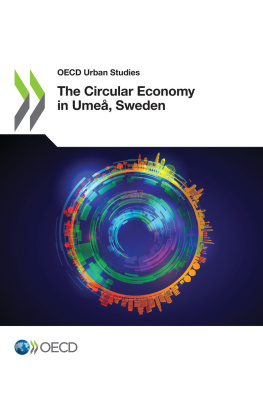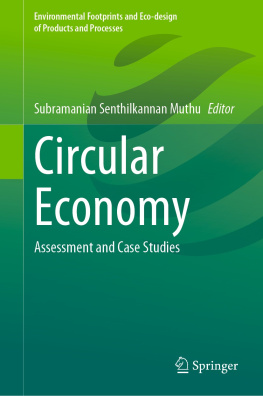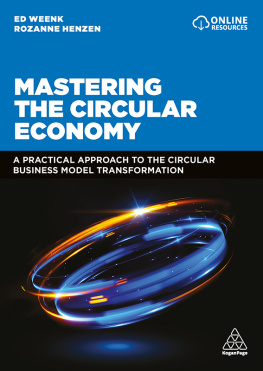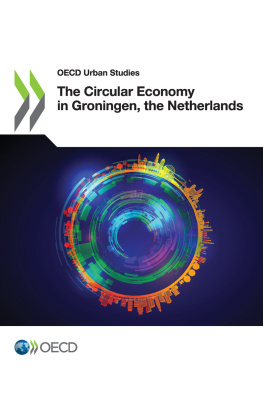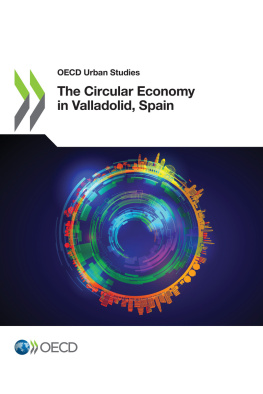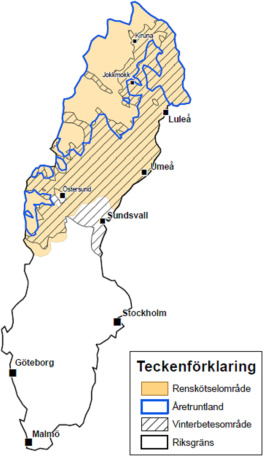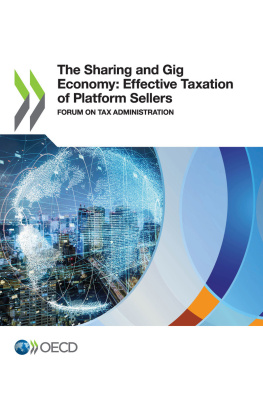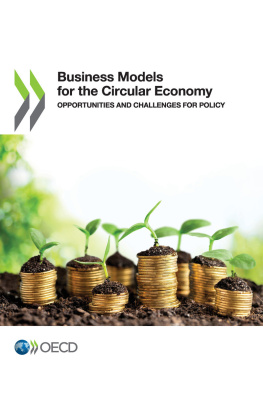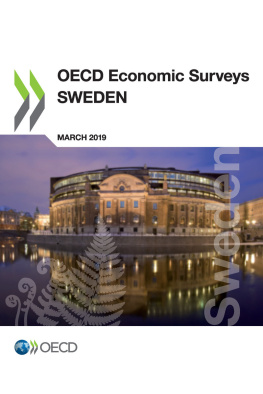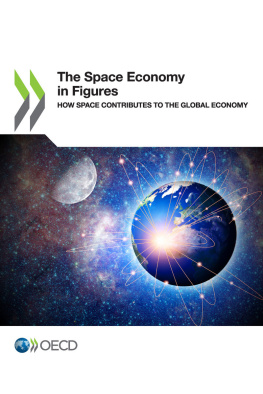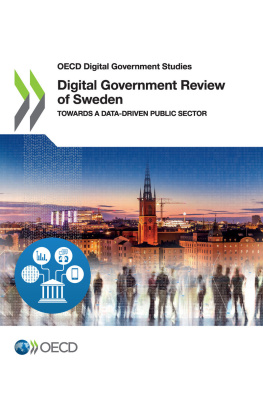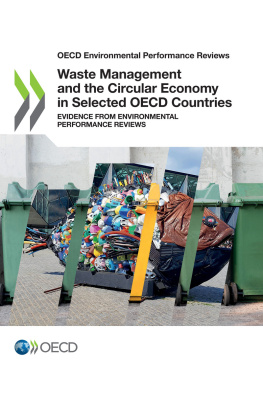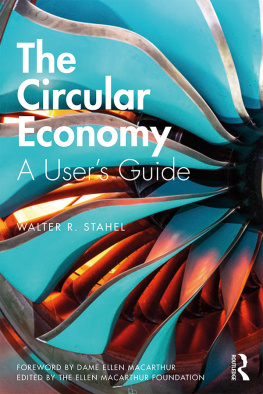OECD - The Circular Economy in Umeå, Sweden
Here you can read online OECD - The Circular Economy in Umeå, Sweden full text of the book (entire story) in english for free. Download pdf and epub, get meaning, cover and reviews about this ebook. year: 2020, publisher: OECD Publishing, genre: Politics. Description of the work, (preface) as well as reviews are available. Best literature library LitArk.com created for fans of good reading and offers a wide selection of genres:
Romance novel
Science fiction
Adventure
Detective
Science
History
Home and family
Prose
Art
Politics
Computer
Non-fiction
Religion
Business
Children
Humor
Choose a favorite category and find really read worthwhile books. Enjoy immersion in the world of imagination, feel the emotions of the characters or learn something new for yourself, make an fascinating discovery.
The Circular Economy in Umeå, Sweden: summary, description and annotation
We offer to read an annotation, description, summary or preface (depends on what the author of the book "The Circular Economy in Umeå, Sweden" wrote himself). If you haven't found the necessary information about the book — write in the comments, we will try to find it.
OECD: author's other books
Who wrote The Circular Economy in Umeå, Sweden? Find out the surname, the name of the author of the book and a list of all author's works by series.
The Circular Economy in Umeå, Sweden — read online for free the complete book (whole text) full work
Below is the text of the book, divided by pages. System saving the place of the last page read, allows you to conveniently read the book "The Circular Economy in Umeå, Sweden" online for free, without having to search again every time where you left off. Put a bookmark, and you can go to the page where you finished reading at any time.
Font size:
Interval:
Bookmark:
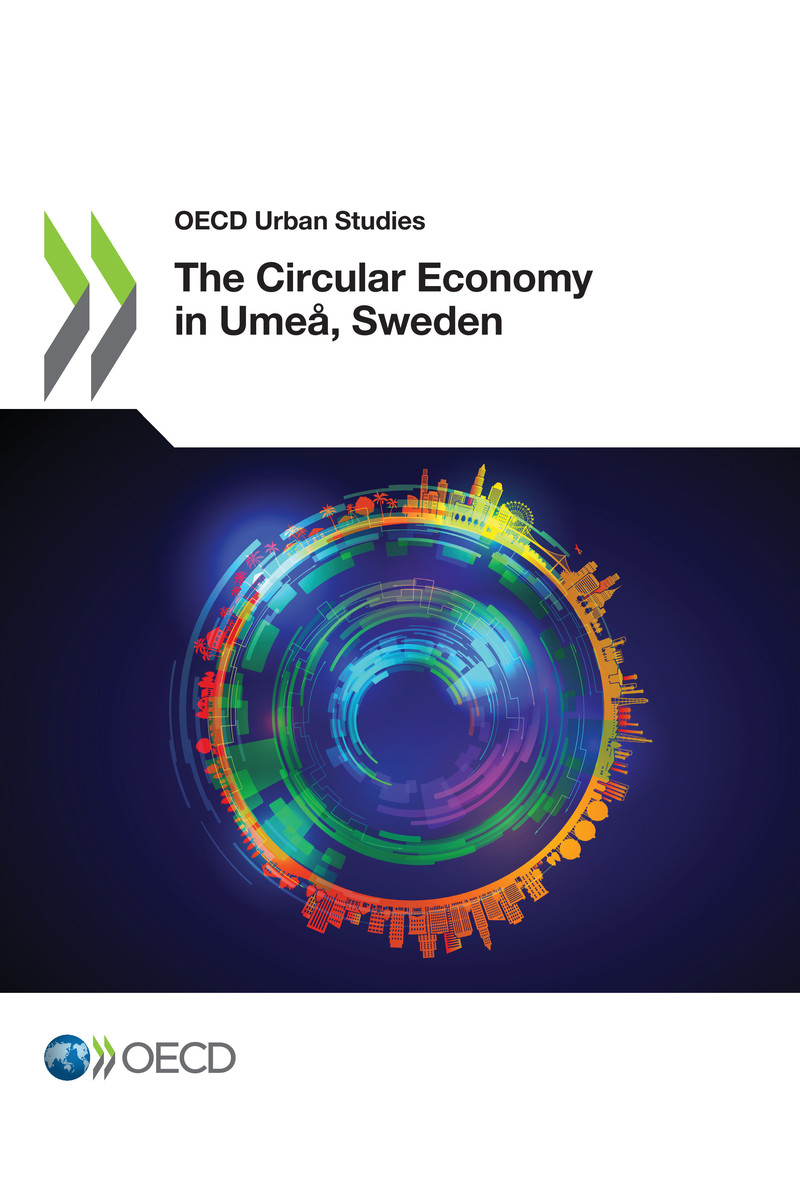
OECD (2020), The Circular Economy in Ume, Sweden , OECD Urban Studies, OECD Publishing, Paris, https://doi.org/10.1787/4ec5dbcd-en .
We are very proud to introduce the results of an 18-month policy dialogue with 100+ stakeholders to shape a vision and strategy for a circular economy in the city of Ume, Sweden as part of the OECD Programme on the Circular Economy in Cities and Regions.
In the face of megatrends such as population growth in cities, urbanisation and climate change, the transition to a circular economy is becoming an imperative for cities of all sizes to reduce the pressure on natural resources, while addressing new infrastructure, services and housing needs, and boosting economic growth and environmental quality. Cities and regions are at the core of citizen well-being, in areas such as transport, solid waste, water or energy.
Moving from a take-make-dispose linear system to one in which resource waste is prevented, implies going beyond solely technical aspects and ensure governance and economic conditions are met. For the circular economy to materialise, policies need to be aligned, stakeholders engaged, and legal and regulatory frameworks enabling innovation.
This report summarises important milestones achieved so far. Its analytical framework puts People, Firms and Places at the centre of the shift towards a circular economy. It puts forward bold recommendations and concrete actions for Ume to act as promoter, facilitator and enabler of this transition. This requires political leadership and commitment towards the transition to sustainable pathways, as well as multi-stakeholder and multi-sectoral approaches, and new business models.
An important part of the work was the bottom-up and inclusive policy dialogue, whereby each stakeholder could share experience, listen and learn from each other, and benefit from expertise and guidance from peer cities and the OECD team.
While we are aware that we are just at the beginning of the transition from a linear to a circular economy in Ume, the city is committed to implement these recommendations and raise their profile within our community and globally. The OECD Centre for Entrepreneurship, SMEs, Regions and Cities stands ready to support Ume with this endeavour. This will be all the more relevant in the aftermath of the COVID-19 crisis, when cities and regions will be urged to reconsider the link between environment and health, reflect on the de-materialisation of the economy and society and on circular resources loops in response to the hyper-globalisation of the recent years. The OECD Programme on the Circular Economy in Cities and Regions will seek further opportunities, evidence and recommendations to make the circular economy part of the solution towards healthier, less resource wasteful and environmental aware societies.

Lamia Kamal-Chaoui
Director, OECD Centre for Entrepreneurship, SMEs, Regions and Cities


The circular economy is about preventing wasted resources through reusing materials, improving design to increase the durability of goods and products, and transforming waste.
Population growth, climate change and urbanisation are likely to increase the pressure on natural resources, as well as the demand for new infrastructure, services and housing. By 2050, the global population will reach 9 billion people, 70% of which will be living in cities. Cities represent almost two-thirds of global energy demand, produce up to 80% of greenhouse gas emissions and 50% of global waste.
Cities and regions play a fundamental role in shifting from a linear to a circular economy, as they are responsible for key decisions in local public services such as transport, solid waste, water and energy that affect citizens well-being, economic growth and environmental quality. In cities and regions, the circular economy should ensure that:
services (e.g. from water to waste and energy) are provided while preventing waste generation, making efficient use of natural resources as primary materials, optimising their reuse and allowing synergies across sectors;
economic activities are planned and executed in a way to close, slow and narrow loops across value chains, and;
infrastructure is designed and built to avoid linear locks-in, which use resources intensively and inefficiently.
The OECD Programme on the Circular Economy in Cities and Regions was designed to support national and subnational governments in their transition towards the circular economy through evidence-based analysis, multi-stakeholder dialogues, tailored recommendations and customised action plans. The Programme relies on a consortium of cities and countries engaged in peer-to-peer dialogues and knowledge sharing activities, including Glasgow (United Kingdom), Granada (Spain), Groningen (Netherlands), Ume (Sweden), Valladolid (Spain) and Ireland.
This report argues that a circular economy strategy in Ume could help enhance coherence across existing strategies targeted to transform it into a green, sustainable and sharing city. It summarises the findings from an 18-month policy dialogue to develop a vision for the circular economy transition and learn from existing best practices. The circular economy is a mean to achieve Umes goal to be fossil-free by 2040, while enhancing innovation and creating the enabling environment for new business models. Transitioning towards a circular economy has been a political priority for the city since the Strategic Plan 2016-28. It set the objective for the city of Ume to become a circular economy leader. Being one of the fastest-growing cities in Europe, Ume is preparing for the future in terms of housing, infrastructure and use of natural resources. Umes local leadership and drive is also timely for the National Delegation for the Circular Economy created by the Swedish government in 2018 to strengthen societys transition to a resource-efficient, circular and bio-based economy.
Font size:
Interval:
Bookmark:
Similar books «The Circular Economy in Umeå, Sweden»
Look at similar books to The Circular Economy in Umeå, Sweden. We have selected literature similar in name and meaning in the hope of providing readers with more options to find new, interesting, not yet read works.
Discussion, reviews of the book The Circular Economy in Umeå, Sweden and just readers' own opinions. Leave your comments, write what you think about the work, its meaning or the main characters. Specify what exactly you liked and what you didn't like, and why you think so.

